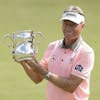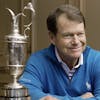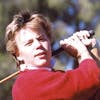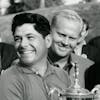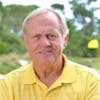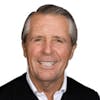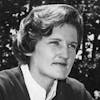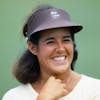Karrie Webb - Part 4 (The Later Wins, the WGHOF and Philanthropy)
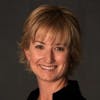
In the concluding episode of our four-part interview series with Australian golf legend and World Golf Hall of Fame member, Karrie Webb, we delve deep into her unwavering commitment to the game and how she navigated her storied career. From candid moments on the tour to her personal reflections on legacy, this final segment offers a holistic view into the life of one of golf's most iconic figures.
Karrie shares an eye-opening anecdote about her philanthropic endeavors, revealing her pivotal role in supporting an important documentary about the founders of the LPGA. Her account serves as a tribute to the incredible women who laid the foundation of women's golf, emphasizing the importance of preserving their stories for the next generation. As we remember the late Marlene Hagge, Karrie reflects on the indelible influence of these trailblazing women on her own career.
Co-hosts Mike Gonzalez and Bruce Devlin also delve into the imminent induction of LPGA Founders into the new World Golf Hall of Fame at Pinehurst. Both guests and hosts agree—it's long overdue but a fitting honor for these incredible women.
Closing on a high note, Karrie is put to the test with our traditional three closing questions, offering listeners unique insights into what she might have done differently in her career and the one mulligan she wishes she could take. Karrie's authentic and thoughtful answers encapsulate the essence of her career—deep respect for the game and an everlasting desire to give back.
Whether you're a die-hard Karrie Webb fan or just passionate about the history and future of golf, this final segment is a must-listen, delivering a perfect blend of heartfelt anecdotes, professional wisdom, and a dash of nostalgia. Don't miss out on this enlightening conversation that bridges generations and celebrates the beauty of the game we all love.
Subscribe now to "FORE the Good of the Game" and tee it up with us as we continue to explore compelling life stories from the world of golf. Thank you for listening!
Follow our show and/or leave a review/rating on:
Our Website https://www.forethegoodofthegame.com/reviews/new/
Apple Podcasts https://podcasts.apple.com/us/podcast/fore-the-good-of-the-game/id1562581853
Spotify Podcasts https://open.spotify.com/show/0XSuVGjwQg6bm78COkIhZO?si=b4c9d47ea8b24b2d
Google Podcasts https://podcasts.google.com/feed/aHR0cHM6Ly9mZWVkcy5idXp6c3Byb3V0LmNvbS8xNzM3Mjc1LnJzcw
About
"FORE the Good of the Game” is a golf podcast featuring interviews with World Golf Hall of Fame members, winners of major championships and other people of influence in and around the game of golf. Highlighting the positive aspects of the game, we aim to create and provide an engaging and timeless repository of content that listeners can enjoy now and forever. Co-hosted by PGA Tour star Bruce Devlin, our podcast focuses on telling their life stories, in their voices. Join Bruce and Mike Gonzalez “FORE the Good of the Game.”
Thanks so much for listening!
Music playing 00:00
Mike Gonzalez 00:15
Let's start it off a wonderful 2006 Because you had four more wins after that, winning the Michelob t at Kingsmill. Another walk in the park by seven over over Lorena and Hee-Won Han, the Evian Masters you could point to is another one that we were just before your time but you won the 2006 Evian Masters by one over Laura Davies and Michelle Wie. That didn't become a major until 2013. I'm sure you wished it had.
Webb, Karrie 00:48
Yeah, do you know I think you know the evolution of Evian becoming a major I think when I want it in 2006. It has always been a special event, even prior to it being an LPGA event. You know, Frank Roberg and Evian had always tried to elevate the women's game even you know, from the very first year I think 94 was the first year it was played. And I played at 95 in my rookie year, and a couple times after that, prior to it becoming an LPGA event. So every year Frank raised the purse to compete with the U.S. Open and it forced the USGA to raise their purses so that they they remained the highest person women's golf. So Frank had done a lot for women's golf and, and winning that event. Although I never saw it becoming a major. It was always a big event on our schedule, and it was always one of the biggest purses on our schedule. So I think players, you know, wanted to win it as much as they wanted to win a major because it was worth more than two or three of our other majors.
Devlin, Bruce 02:04
After the Evian Masters you win the Long's Drug Challenge, where you beat Annika Sorenstam again, the Mizuno Classic by four shots over Kaori Higo. Is that right? Is that am I pronouncing that right?
Webb, Karrie 02:22
Yeah, I'm not sure there's was a couple of Higos that played on the LPGA.
Devlin, Bruce 02:30
You had quite a quite a career. Quite a career.
Webb, Karrie 02:34
Thank you Bruce.
Mike Gonzalez 02:36
You get through that that year 2006. Where are you at? Because you're still fairly young. We haven't heard about any injuries. And so you must have been healthy. So what was going through your mind at that point?
Webb, Karrie 02:54
Well, I mean, obviously, you know, 2006 ranks up there with one of my one of my best years of my career. You know, I think, you know, coming from sort of being low on confidence heading into the year, I think it's a very special year, because one, it showed me that one shot, the shot that I holed at Dinah Shore was the catalyst to a great year. And so, you know, went from really, you know, not not feeling great about the prospects of the year to then going on to having one of the best years of my career. So, you know, it was it was, it was a great learning experience. And, Mike, as you mentioned, as far as injuries go, I've been very, very lucky in my career. I've never, never missed any playing time due to injuries. Yeah, you know, I've never withdrawn from an event for injury. And I've, you know, the schedule I've set for the year has been played, you know, almost 100%, if not 100%, you know, very, you know, very, very healthy. So, you know, I feel, I mean, I think I did some good work to create that. But I think there's definitely an element of luck and good fortune to have made it through my career without missing playing time. For injury.
Mike Gonzalez 04:25
You see some fairly fit players that it's made just one shot in the in a wrong kind of lie and boom, you know, something happens. Yeah.
Webb, Karrie 04:36
I think to you know, the younger players today are growing up in an era where speed and power is, is hugely important on the golf swing. And it's placing, you know, young ages. It's placing enormous amount of pressure on their bodies. And I think, you know, we're seeing the toll that's taking on their bodies. So now, you know, you're gonna have to look at, you know, Nelly Korda who I don't, I don't think I think she's had maybe one year where she's played injury free, and she's only 22 or 23 or whatever Nelly is, you know, I think, girl and guys, you know, focusing on golf at younger and younger ages and, and making it their only sport to start with. So your body is just training one dimensionally for a long, long, long, long times. And for many, many years, even before you become a professional golfer. You know, I think it's, it's showing that it's taken a toll on on players bodies.
Mike Gonzalez 05:43
And we've heard a lot of your peers make that same comment about wishing that the players were better rounded, playing different sports developing their complete body. And then the other difference we see, as you mentioned, golf much like baseball pitching has gone from being a, in the case of baseball, you used to be able to pitch. Now you're throwing, in other words, it's a maximum efforts sport as a pitcher, it didn't used to be that when you hit a sweet spot in golf the size of the top of a pencil head, you couldn't go at it 130 miles an hour.
Webb, Karrie 06:19
Right. Yeah, you're definitely right. And I think I think that was one of the challenges that, you know, I mean, I, I haven't played full time since 2017. And I think since then we've really seen the length on the LPGA from the LPGA players increased a lot. But you know, even at the tail end of it, you know, from when I first came on tour, I was definitely in the top 10 or 15, longest players to, you know, probably by 2017, being just above average. Because of the way I learned to play golf, it would have meant completely retooling my golf swing to start adding speed to it. Because, you know, I, I never let that way. You know, you could never, no one taught me to swing at 100%. You know, you're always swinging within yourself because of the direction the ball was gonna go in. And how solid you were gonna hit it. So it would have been a complete change in how I play golf. had had I even grown up five years later, I would have I would have probably been forced to do that. Because I still wouldn't have been in the age of technology. But I would have I would have, yeah, I would have been young enough that I would have needed to start thinking about that.
Mike Gonzalez 07:46
Well, you mentioned sort of finishing up full time in 2017. But as we come out of 2006 several victories still out there, you won. The J Golf Phoenix LPGA International. That was your second win there. In 2009 you won the HSBC Women's Champions at Tanah Merah in Singapore. And also that year, the RR Donnelley LPGA Founder's Cup which I'll come back to with you. Yeah, a couple of wins in 2013 at the ShopRite, which is a you know, a name everybody recognizes on that tour and, and also the hand of the Handa Ladies Masters. You won the the Handa Women's Australian Open at Victoria Golf Club in 2014, which I think was the last of your five wins there. And then a win at the Founders Cup by one over five players in 2014. So you had several more victories in you after that good year in 2006. But all good things come to an end at some point. So what kind of caused you to to wind it down when you did?
Webb, Karrie 08:56
Well, I didn't really one down full time till 2017. But, you know, my goal once Golf was announced into the Olympics, I think that in 2010, I think it was announced was to play at least full time through to to the Olympics, and hopefully qualify for the Olympics. Which if I if I have any disappointments in my career, that that's probably up there in the top three because of not not playing well enough in the last couple of years to make the team because I knew that was probably my only shot at making the Olympics. I didn't didn't think by 2020 I'd still be playing full time which which I wasn't. And so I played full time on one more year after that, and then I actually realized, I think, because I you know, I was fortunate enough not to have any injury that you know, I just was really burnt out. You know, I'd never been never had that downtime that an injury would give you. And the desire to get back to playing golf. You know, it was just one year rolled into the next year, next year next, and then all of a sudden, it was 2017. And, you know, at the end of 2016, I was I was really distraught, disheartened with the game, and I thought, you know, commit to 2017 full time and, and see if I can turn that feeling around. And, you know, things just sort of didn't get much better. And, you know, I was really close, but how I felt about the game, I could have just walked away from it, you know, but I think I, I was, well, probably old enough at the time to know that I was burnt out. And that, you know, golf had been so, so great to me that there's no way that I could leave the game the way I was feeling. And so, you know, just decided to play part time, the next couple of years, which I actually really enjoyed, and, and got my love back for the game. And plan to do that in 2020. But obviously, you know, COVID ended that and, you know, I probably had a neck injury and neck injury, but a wear and tear issue with my neck that I needed to take care of. And, you know, once golf resumed, and there was all those restrictions, I was like, that's not really what I'm playing. If I was 23. Again, I would have been out there with bells on but you know, part of my enjoyment of going back out on tour was to catch up with the people that I you know, that I was missing, seeing and I wasn't going to get to do that. So 2020 was also good for me because I realized I could survive without playing golf as well. So it sort of helped, helps with that transition.
Devlin, Bruce 11:55
So Mike always says to me, you know, there's one other part of all of these great champions that you always like to ask a question about Bruce. So I'm going to ask you the question. Yeah, you're the 79th World Golf Hall of Fame and major champion that we've spoken to in the last two and a half years. What do you think your great players winning percentages in playoffs?
Webb, Karrie 12:22
Well, I know mine's not in the positive i i definitely lost more than I want. But I don't know. I don't know if I'm, if that's a that's a common thing or not, but yeah, definitely pretty common.
Devlin, Bruce 12:39
It's 40 42% I think it is of all the playoffs between all the great players have been able to win so yeah, I think what it does it just shows you what a bit of a crapshoot it is in a playoff. Yeah, that's
Webb, Karrie 12:53
why definitely, yeah, well, and I think you know, if you if you look at, you know, Hall of Famers careers, there's lots of seconds that go along with the first as well. So usually some of those are in playoffs.
Devlin, Bruce 13:05
Yeah, yeah. Yeah, that's
Mike Gonzalez 13:06
That's true. We talked to Kathy Whitworth What 88 wins. 95 seconds. Yeah.
Webb, Karrie 13:12
That's it. Yeah.
Mike Gonzalez 13:14
And speaking of seconds, you know, as as we sort of spin down through your your major career. We've talked about seven wins, but you had some close calls. One of your playoff losses was to Se Ri Pak in the 2006 LPGA Championship at Bulle Rock. You finished that get the following year to Suzanne Pettersen at the same place. So you probably liked that Golf Course a little bit, but you don't always come out on top and Evian 2014 you had a second. British Open 2009 you had a second to Catriona Matthew, who we're going to talk to next week on the show. Could have been a few more I guess, woulda, shoulda, coulda.
Webb, Karrie 13:54
Yeah, woulda, shoulda, coulda, I bet I probably won some that I shouldn't have won as well.
Devlin, Bruce 13:58
There you go.
Mike Gonzalez 14:00
I won't ask you to name one.
Webb, Karrie 14:03
I don't know if I'd be able to name off the top of my head. I know I know for sure that I got lucky and I feel
Mike Gonzalez 14:12
Yeah, so you've had a chance to play a little bit of senior stuff already? We talked at the top about you know the age for LPGA stuff being sort of 45 and you got to wait a little bit for the USGA do you plan on playing a little bit of the USGA stuff as well?
Webb, Karrie 14:28
The Legend's stuff?
Mike Gonzalez 14:30
Yeah, well, you know like the USGA Women's Senior Open.
Webb, Karrie 14:33
Oh, yeah. Well, I've got a couple of birthdays to go before I get there. So I don't know if anyone ever that said that they're in a hurry to get to 50 So
Devlin, Bruce 14:43
Might as well take your time right?
Webb, Karrie 14:47
I yeah, I definitely think I will play though once I once I reached that age, but now I'm quite quite content, playing a handful of times a year and then enjoying golf socially.
Mike Gonzalez 15:00
Yeah, well, before we talk about some of the stuff you're involved in and passionate about today, Bruce, you just look through the the various awards, honors accolades that have been bestowed upon. Karrie Webb, quite an incredible list.
Devlin, Bruce 15:14
And he has a couple of things that I noticed is he's a member of the Order of Australia. That was in 2010. And then 2018, you got a special became an Officer of the Order of Australia, which is something that's, that really says all of the great things and contributions that you've made to the sport in Australia. So congratulations on both them. From my standpoint, anyhow.
Webb, Karrie 15:43
Yeah, thank you very. So those are definitely very, very special awards. And not, I don't think, something that you set out to achieve in your life. And both occasions, I didn't know that my name had been put forward. So they were very, very nice surprises. Yeah.
Mike Gonzalez 16:03
Of course, Hall of Fame induction, you mentioned, the tournament at which you scored enough points. But that was sort of a technicality. Was it because you had to play some more? And then you probably had to get older?
Webb, Karrie 16:13
Yeah, yeah. Well, back then the rules were you had to be on tour for 10 years to qualify. And so I think I was four and a half years in. So yeah, it was a little time to wait. But, you know, you know, even even being inducted when I did, I think, you know, and getting inducted into the World Golf Hall of Fame at 30. You know, I think I would have appreciated and looked at my career as a whole better later in my life than in the in the heat of my career. You know, I think I definitely understood the magnitude of what I achieved. And but I think, you know, I would have would have appreciated the honor even more if I had waited until probably now, or I think it's over 45. Now. So, you know, I think, you know, it is always better to look at your career when it's either almost, or it's done, or it's almost done. I think you have a way better perspective on it.
Mike Gonzalez 17:28
Sure. Yeah. Yeah, no question. 2016 LPGA William and Mousie Powell award, among a whole list of others sports, Australian Hall of Fame 2022.
Webb, Karrie 17:41
And Golf Course, architecture. Tell us about that. Yeah, that's a Golf Course architecture sort of been in my life since early on. In my late 90s, I got an opportunity to be a part of designing and Golf Course close to where I grew up. Down the price upon at Laguna Keys. David Graham had designed the first course there and a new owner had come in and wanted a second course built. And because I was doing what I was doing on the world stage, and also growing up in that neck of the woods, I was given the opportunity to do that. And it was a great experience. You know, I saw the land as a rain forest, to the corridors cut to the core shapes. And then unfortunately, the owner went bankrupt. And that's where the Golf Course ended. And now it's an overgrown rainforest again, so but I think that got my taste for it. And I knew it would be something that I would like to look into. As I got older and wasn't playing as much and Ross Parrot and Peter Thompson. Well, Peter, Peter always been such a lovely man and a great supporter of wine throughout my career. And
Devlin, Bruce 19:08
He could play a little too, couldn't
Webb, Karrie 19:09
Yeah. Ross and Peter graciously asked me to be a part of their team for the Rio Olympic course bid for the Olympics in 2016. So that was really my next foray I had a couple of others. I've actually been redesigning Townsville Golf Club with Bob Harrison for a number of years now. But this was my next sort of jump into into the business with the fam and and quite honestly, yeah, I enjoyed working with both of them right from the start. And they both you know, had years and years and years of experience and you know, trusted and me and knew that and really my may feel a part of the team. And I enjoyed that a lot. And we made it to the finals of that design competition. And unfortunately didn't didn't win it. But we went on and bid on a couple of other projects, one being real clients that we didn't win. Amazingly, but Peter, when Peter retired, I guess he had mentioned to Ross that he hoped one day that that we would work together and, and 2018 Ross and I put in a bid for ________ golf club. And we won out of 29 or 30 teams putting their names in the hat. So that was sort of where Parrot-Webb started. And, you know, COVID wasn't wasn't great for building our business. But we're starting to get a little bit more traction now. So hopefully, that's something that'll carry on for for many years to come.
Devlin, Bruce 21:03
So Karrie, tell us a little bit about your philanthropic endeavors. I know you have the Karrie Webb Weries with Golf Australia and also Spinal Cure in Australia. We'd like to know a little bit more about them.
Webb, Karrie 21:19
Yeah, well, the Karrie Webb series is something that's been very special to me since we started it in 2007. The first scholarship winners came to, to the U.S. Open in 2008. And it was a it was always something that I wanted to do was find a way to give back to women's golf in Australia. And, you know, my collaboration with golf, Australia has been something that I have loved since day one. And you know, not only to the girls, the two girls that receive the scholarship, get monetary support, to help with golf travels and coaching etc. But to me the highlight for pack for Well, I think for them, but it definitely is to me is it's been having them over to the US for a week. And while I was playing in the majors, neither attended the U.S. Open or the women's PGA. And those weeks would have were really fun. I think, you know, full circle moment, in 2019. Staying in a house with the current scholarship winners, Becky Kay and Grace Kim. Grace now is out playing on the LPGA and past scholarship winners Hannah Green and Sue Oh were staying in the house as well as Stacey Keating, who is Stacey Peters she is now who's staying in the house Stacy was one of the first scholarship winners. So all staying together and Hannah ended up winning the KPMG Women's PGA so very, very special moment. Yeah. So I really, I really enjoyed my involvement. I don't think I'm not a coach by any means. But I love mentoring the girls and I and I don't think until you actually are asked about your experiences do you really feel like you have much to give, but I've really enjoyed that part of it over the years. And really being a part of watching all the young next Australian generation of women who are going to fly the flag on all the tours around the world, it's just to be a part of their careers and watch their careers unfold to whatever whatever they might be. So, you know, I've gotten a lot out of that. And, and I, you know, I'm pretty sure that they also have as well. So that's been really important. And as far as Spinal Care. You know, I've been very involved in the US with the Christopher Reeve Foundation. That was really my first foray into being a part of the cure for paralysis. And obviously, that's some similar relationship with Kelvin Heller , and, and him becoming a quadriplegic when I was 16. So, you know, I actually, I played an outing on Monday, and it was actually the Christopher Reeve or the Reeve Foundation, golf day. And so, still still, that's still a big part of my life. And, you know, think what the foundation stands for, you know, they're definitely searching for a cure, and I've been a part of the foundation since 1998. And this is probably the most exciting time there's been an Research part, you know, I think a cure to paralysis is, is as close as it's ever been. So. So that's been really exciting. But also, while Dana Reeve was alive, she understood that, besides finding a cure for paralysis, it was really important to support the newly paralyzed people as well as the support family and friends, whoever that they had as a support in into this new life, and to help them navigate through all the challenges that there was, and obviously, you know, my experience being involved with Kelvin is how much it changed not only his life, but his wife life and his children's lives. And so that's been a really important part of my life.
Mike Gonzalez 25:54
Well, thanks for sharing some of the fulfilling work that you're involved in. I think before we wrap up, Bruce, as you know, during the last year of us almost exclusively doing interviews with the lady pros, we've come to learn a lot more than we knew a year ago about the LPGA and how it came to be. And I can think back to Gloria Ehret suggesting to us that we look at a book by Liz Kahn on the 50 year history of the LPGA. And from that we've used as a resource of course, we've got other things that we've learned from as well. And, and and then through Liz Kahn, learning about a documentary that was released in 2016, celebrating the 13 founders of the LPGA Tour, it's called "The Founders." And our guest today had a big part in making that happen. We thought Karrie, you'd tell us a little bit about that.
Webb, Karrie 26:49
Yeah. Well, obviously, you know, I wouldn't be sitting here talking to you guys, if it weren't for our 13 founders and all the women that came before us. So in 2014, documentary film company, I off their arm that had heard about the story of our founders. And it really was a story that should have been told many, many years before it was but off their own bat, they wanted to make a documentary movie about about the story of the LPGA. And how that started was the 13 women that that started it. And they were at, at the founders cup on named off named for our founders, to celebrate our past and, and then give back to our future with the donations for that tournament, going to the LPGA USGA Junior girls golf program. And so they were at that event to interview certain players that they wanted to be in the documentary, and I was asked to be a part of it. And I was talking to them about how I thought this was long overdue, and, you know, thanking them for it, making it and they just mentioned that they were still trying to raise money to finish it. You know, they literally were doing this on their own. It wasn't, you know, the LPGA hadn't asked them to do it the USGA and us you know, it was they simply thought it was a story worth telling. And so, fast forward to Sunday, I have a come from behind win. And I as was sort of early tradition in that event. I think it started I won the first event, the first founders cup, and in the first year, we played for no purse and the winner got to donate 200,000 to a charity of their choice. And back then I and the rest of the money was going to the LPGA/USGA Junior girls golf. But fast forward to when I won in, in 2014. I think Stacy Lewis one year prior to me, and when she won, she donated $50,000 to junior girls golf. And so I was aware of the, you know, sort of trended that that was what happened with the winners after after we started playing for actual money. And so, I thought, you know, I would have to, you know, I should not have to, I should donate money to the LPGA/USGA Junior girls golf program, but while I was on on the 18th, waiting for the presentation, I looked up and I saw the documentary filmmakers up there and so, I decided to split my donation and donate half of it to their to their cause, which you know, It created the biggest cheer from them. And, you know, sort of started a little bit more traction for the film. And Stacy Lewis also ended up donating some money to the cause as well. And the LPGA came on board and, you know, the, the documentary got done. And, you know, I just think it's, you know, now especially, you know, we lost our Marlene Hagge. This year, who was our last founder to pass? You know, I was fortunate enough that when I first came on tour, there was still a mass of the founders a lot. And then that was still relatively young, and we're traveling out. So a few events, yes. So, you know, I got to experience that and hear the stories from them. You know, they'd sit in the locker room and tell their stories, and everyone's sat down and listened when they spoke, and, you know, it's a great, it's a great piece of footage to have, so that the next generation of LPGA players coming along, understand what we've worked so hard for all these years, you know, generation after generation, as I've tried to carry on what the hell out LPGA founders started. So I have one little post script story for you that you might get a kick out of, okay. 68 years ago. I played at the Lakes Golf Club with Marlene Hagge and Kel Nagel in a golf tournament. Yeah. And we had were sitting having lunch together. And she said to Kel, who at that time was 34 and I was 17. She said, Oh, so we playing with your son today and Kel says he's not my son, he's 17 years old How old do you think I am? She said well I don't know. He said I'm 34 She said Well, so what. That works. So that was a was a long time ago. It was sad to sad to see her pass yeah.
Mike Gonzalez 32:11
Yeah. Well, as you said, what long overdue and I think what's nice, not knowing how this happened behind the scenes, perhaps the notoriety the the documentary helping but in June of next year in conjunction with the U.S. Open and in conjunction with the opening of the New World Golf Hall of Fame at Pinehurst, we will have the rest of the founders inducted and so that includes Marlene's sister Alice. It includes Betty Danoff Helen Dettweiler, Helen Hicks, Opal Hill, Sally Sessions, and Shirley Spork.
Webb, Karrie 32:49
Yeah. Yeah, again, long overdue. And I think probably held up. Just because women are women, and that our founders were as big competitors as any group of women and they wanted our Hall of Fame to be about how you were the player. But, you know, I really feel the contribution of all 13 women, you know, is worthy of Hall of Fame status.
Mike Gonzalez 33:25
And they each have stories worthy of a movie. Yeah, they do.
Webb, Karrie 33:29
Yeah, that's, that's very true.
Devlin, Bruce 33:32
So Carrie, you've been wonderful with your time today. But we do not let our guests go away without answering three questions. Okay. And I'm gonna let I'm gonna let Mike ask you the first question.
Mike Gonzalez 33:47
Oh, wow. Thank you very much for this honor. So Karrie you're 19 years old again, going to be a professional golfer, but you know, then what you know now, what would you have done differently?
Webb, Karrie 34:13
I don't know if I would have done much, but I think I would have told myself to take enough time to smell the roses. But don't don't, you know, don't stay there and enjoy it too much. Like, I know that. I didn't I achieved what I achieved because I probably didn't, didn't take the time to think about it. But I think I would have loved to have appreciated a little bit more while I was in the heat of it. And the other thing I would have said was even even when you get to being the best in the world, not to be Don't Don't mess with your golf swing. Just stick to what you know and work on everything else. Work on your mind work on your short game. Work on your planning.
Devlin, Bruce 35:11
Okay, second question. I'm gonna give you one Mulligan. Where would you take it?
Webb, Karrie 35:20
One mulligan? Um... oh yeah, I know where it is. Going through all the years. 2014 Evian Masters, or the Evian, sorry. It was a major then. I had a one shot lead playing the last. But 18th was a par four then. And I probably hit one of the purest four irons I have ever hit. And was probably a foot or two from hitting it to three or four feet. And it just sort of hung up on the left fringe. And then Hyo-joo Kim right behind me, sticks her shot to and she was the one that was one shot behind me she hits her shot to 15 feet below the hole. My Mulligan would be instead of bellying a wedge from the fringe, I would have putted it. And I probably would have taken a little more time to think about how fast that that shot was going to be. But the speed definitely caught me by surprise. But I think if I putted it, I wouldn't have had it as far past as I did when I bellied the wedge. So that would be my mulligan. I don't know if the outcome would be any different because she made the putt for birdie. And I would have still had to make a par for a playoff. So going on my playoff record. You never know I might have still finished second but I would have liked that shot over again.
Mike Gonzalez 37:07
Yeah, fair enough. Bruce, you take the last one.
Devlin, Bruce 37:11
I get to do two again. Do I? How would Karrie Webb like to be remembered?
Webb, Karrie 37:20
I think I would love to be remembered for I guess not only the player that I was but how I played the game and how much I respected the game of golf and how much I gave back.
Devlin, Bruce 37:36
That's wonderful. Thanks. It really has been a pleasure. Both Mike and I look forward to this for so long. And we again thank you for your time. Karrie. It's been been a great, great interview. Thank you.
Webb, Karrie 37:49
Yeah, thank you Bruce, Thank you Mike. It was a great trip down memory lane and you you definitely gathered more stats than I knew there was so it was nice to be reminded of all that good golf.
Mike Gonzalez 38:01
Thank you for listening to another episode of FORE the Good of the Game. Please, wherever you listen to your podcast on Apple and Spotify. If you like what you hear, please subscribe. Spread the word. Tell your friends until we tee it up again. Fore the Good of the Game. So long, everybody
Music playing 38:21
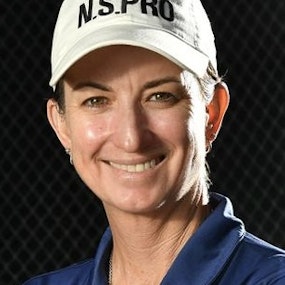
Webb, Karrie
Golf Professional
In a career marked by one accomplishment after another, Karrie Webb’s greatest achievement arguably is qualifying for the World Golf Hall of Fame by age 25. “It took me forever to get in,” said Juli Inkster. “I feel like the turtle and Karrie is the hare.”
“It’s hard to fathom,” added Beth Daniel. “When the LPGA changed the qualifying criteria [in 1999], they made it so the players who dominated their era would be recognized and Karrie’s been dominant.”
Webb succeeded without a learning curve. She was young, confident, and fearless. In 1995, at age 20, she won the Weetabix Women’s British Open before she became a member of the LPGA Tour. Her legend grew when she defied a broken wrist to earn her LPGA Tour card. Then in just her second tournament as a LPGA member, she won the HealthSouth Inaugural. “She was a name you heard about before she became a force on Tour,” said two-time U.S. Women’s Open champion Meg Mallon, “and she didn’t disappoint.”
“The beauty of golf is one day I love it, the next day I hate it. But no matter how my day goes on the course, I get up and I do it again.”
Webb grew up in the small town of Ayr in Queensland and still maintains a residence there. She started playing golf at the age of 8, and earned her first golf trophy in her first-ever golf tournament. “It was the first time I ever played 18 holes,” she remembered. “It was over two days and I shot 150 and then 135, and I won the Encouragement Award.” Little did she know that she had finished in last place. “I didn’t find that out until I got a little older.”
New to FORE the Good of the Game?
Here are some great episodes to start with. Or, check out episodes by topic.














